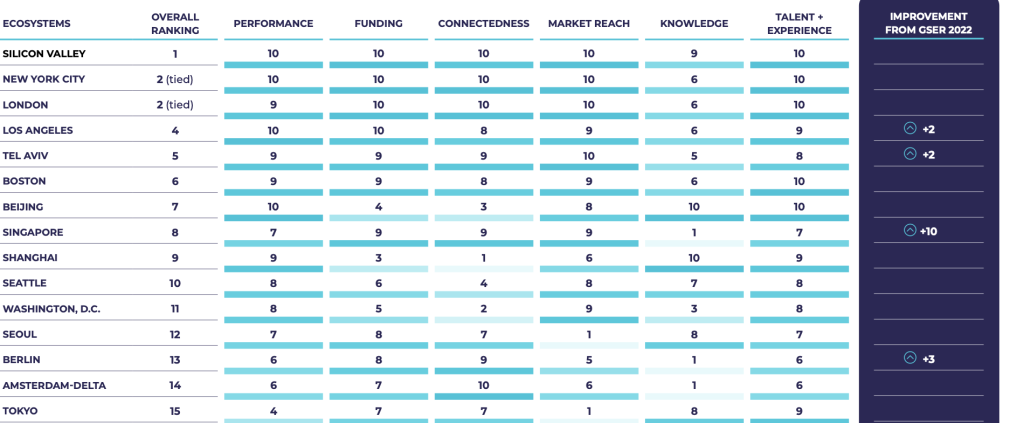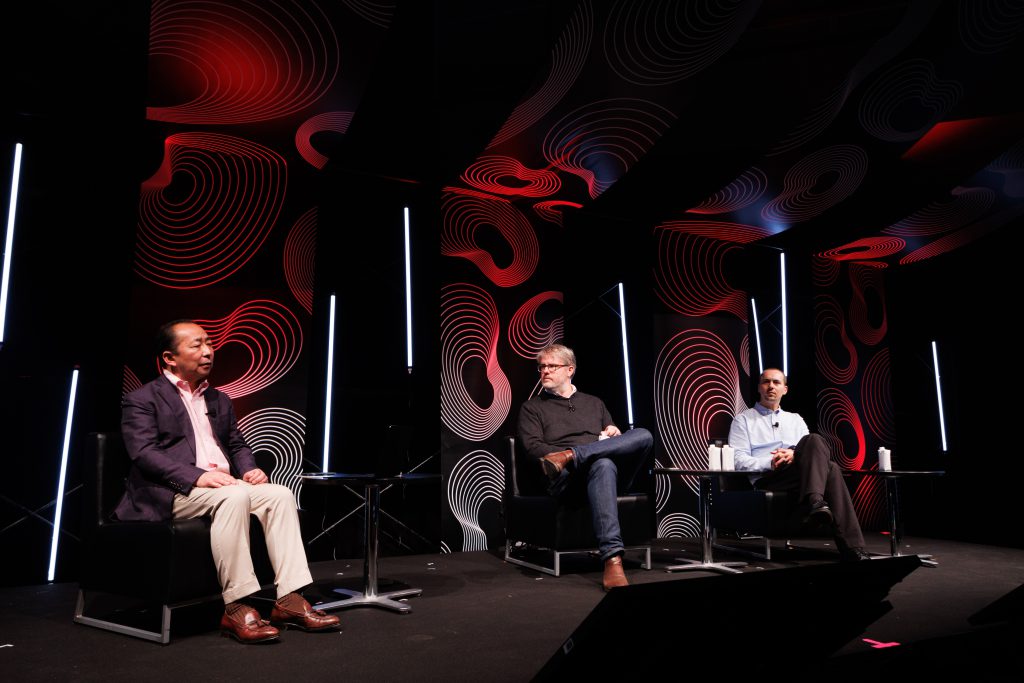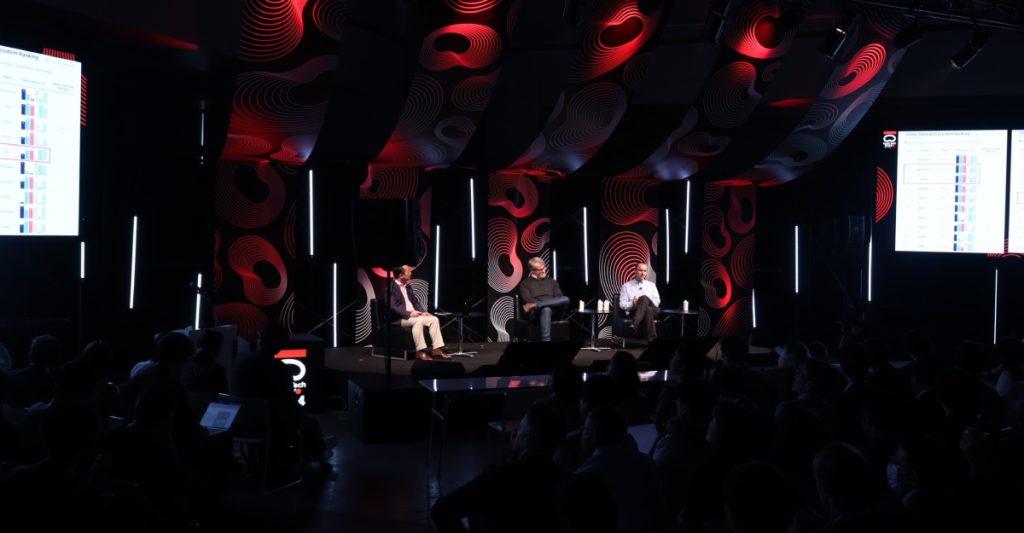Ask any startup expert, and they’ll tell you that the best place to launch a company is the United States (U.S.). This would have been sound advice— around 10 years ago.
In 2012, six of the top 10 startup hubs were based in the U.S., and nearly two-thirds of early-stage funding was concentrated in North America.
But we are in a vastly different startup ecosystem today, one in which success isn’t made in America—or any one nation. It’s built globally.
As part of this year’s SusHi Tech Tokyo Global Startup Programme, Marc Penzel, founder of research and policy advisory organisation Startup Genome, and venture capitalist Mike Jackson took to the stage last Wednesday (May 15) to share insights on the evolution of the global startup ecosystem over the past decade.
Asian and European startup ecosystems are climbing up the ranks
When Marc and his team launched Startup Genome around 12 years ago, they found that about 80 per cent of the value generated in the global startup ecosystem was concentrated in just four cities.
Nearly all high-growth technology startups emerged from these cities, notably from Silicon Valley and Boston. But this trend seems to have come to an end.
Since [our first report], what we’ve been seeing is that this concentration has gotten less and less. So many different cities are now able to produce not only startups, but also scale ups and to a great extent, unicorns as well.
We’re really seeing that more of these places are actually capable of participating in the startup ecosystem and in the global economy, which is both fascinating and exciting.
– Marc Penzel, founder of Startup Genome
Today, numerous other Asian and European ecosystems are ascending in the ranks, solidifying their place as top hubs for startups worldwide.
Last year, Singapore climbed 10 spots to claim the eighth position in Startup Genome’s global startup ecosystem ranking, emerging as a leading startup ecosystem in Southeast Asia with an ecosystem value of US$144 billion.
What do you find in a “great” startup ecosystem?

Despite the ascent of Asian and European ecosystems, Silicon Valley still continues to reign as the top startup hub. “All of the things that you need in an ecosystem, you find them in Silicon Valley,” Marc emphasised.
One reason for this is that many of these ecosystems are still “light on liquidity” said Michael. “These ecosystems are not actually having exits, so oftentimes, you have to get companies to North America to have successful exits.”
Nevertheless, this doesn’t undermine the advancement of Asian and European ecosystems in fostering successful startups.
According to Marc and Mike, globalisation has played a major part in the success of these ecosystems. Startups that are better connected to both the local and global community tend to grow their revenues faster than those with limited connections.
Additionally, ecosystems that are abundant with institutions of higher education and research institutions are often better positioned to cultivate successful startups by providing more avenues for entrepreneurs to collaborate.
Marc added that the final element that can foster a successful startup ecosystem is the availability of quality talent and seasoned entrepreneurs experienced in navigating the intricacies of startup ventures.
How else can a global ecosystem thrive?

Beyond these factors, an often overlooked element that can propel a startup ecosystem to greater heights is international experience. No matter the demographic, individuals within an ecosystem, whether startup founders or students, can benefit immensely from global exposure.
Take a university student, for instance. “Being exposed to startups and one of the top ecosystems just opens your mind,” shared Marc. “It typically broadens your perspective around the opportunities of taking a leap of faith, working on something that has a big mission, and really, you know, being part of the global startup community.”
And when you look at early-stage companies, it’s important for them to attend international tech and startup conferences like the SusHi Tech Global Startup Programme to build connections and immerse themselves in new ecosystems to glean insights on the latest developments in their industry.
If you, as an entrepreneur, have the opportunity to go spend a few months in Silicon Valley, you will definitely have a learning experience that you’re just not going to get elsewhere. At the very least, you’ll get exposure to the sort of those best practices in the startup realm.
Especially if you’re coming from an ecosystem that might be a bit more conservative, or a bit less developed, this knowledge allows you to push back against perhaps bad terms that investors are offering or term sheets that are just inexcusable.
– Mike Jackson
This international exposure, in turn, contributes to the overall vibrancy and competitiveness of a startup ecosystem.
Building a thriving ecosystem is a nuanced and intricate endeavour
The startup ecosystems that have risen to the top have come a long way in building their hubs, having traversed remarkable journeys in nurturing their entrepreneurial landscapes.
They have all had their ‘Cambrian moments’, where the first one or two or three startup success stories emerged, catalysing a surge of talent embarking on their own journeys. The wealth that was made from the first big exits was reinvested back into the ecosystem, fuelling further growth and innovation.
– Marc Penzel, founder of Startup Genome
Building a thriving startup ecosystem is a nuanced and intricate endeavour, requiring steadfast commitment over time, added Marc. “Hence, it’s important to recognise the need to be patient and persistent as a community.”
“I wouldn’t get too caught up with short-term failures or drops in the rankings, because you’re trying to build a very complex system with lots of ideas and synchronicities. And it takes a perhaps a road with many different curves, but at the end, you’re driving in the right direction and it just takes time for you to get to the to the destiny that you want to be.”
Featured Image Credit: Tokyo Metropolitan Government










